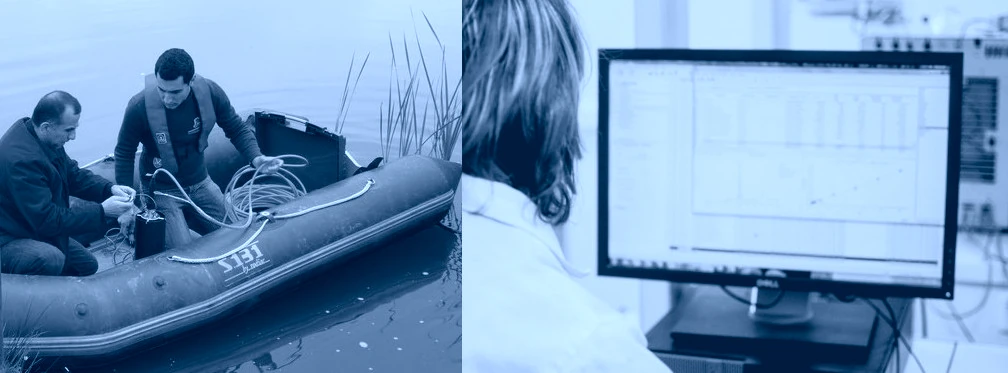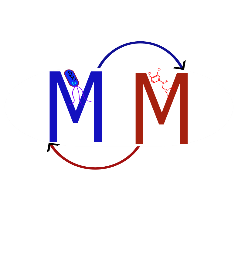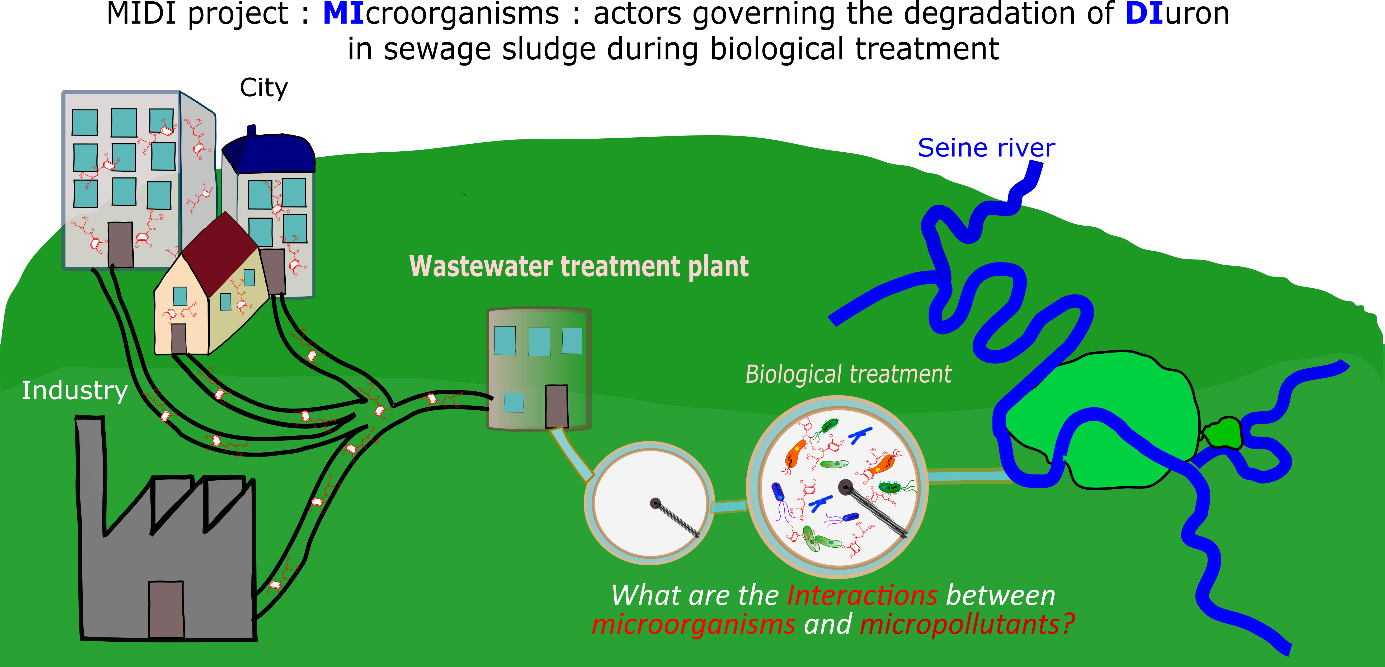MIcroorganisms: actors governing the degradation of DIuron in sewage sludge during biological treatment
Duration: 2022-2024
Project name: MIcroorganisms: actors governing the degradation of DIuron in sewage sludge during biological treatment
Project acronym: MIDI
Keywords: microorganisms, wastewater treatment plants, biological treatment, micropollutants, ecotoxicology
Project leader: My Dung Jusselme and Régis Moilleron
1. Project presentation
The omnipresence of emerging micropollutants in effluents from wastewater treatment plants (WWTP) pose a serious concern due to theirs complex toxicological and ecotoxicological for aquatic environment. During biological treatment in WWTP, organic micropollutants are exposed to multiple degradation pathways and can undergo many reactions by various kinds of microbial resources present in sewage sludge. Under the activities of these microorganisms, numerous micropollutants are transformed into the other products and/or degraded into by-products, which are more toxic than the original products. Therefore, many micropollutants are found in the effluents in higher concentrations than those in the influents. However, the interactions between microorganisms and micropollutants are not well characterized. In this case, we interest in the microbial reactions on the transformation and degradation of micropollutants during biological wastewater treatment processes.
In this study, diuron will be used as a model for the understanding of the mechanisms of transformation and degradation through microbial reactions and this can being tested for other micropollutants.
2. Project objectives
- The first objective is to test the hypothesis that an additional quantity of diuron is produced during wastewater treatment from the transformation of precursor compounds.
- The second objective is to study the processes of diuron degradation by the microorganisms present in the activated sludge during the biological treatment.
- The last one is to research the microbial inoculum capable of diuron degradation in different systems of wastewater treatment.
3. Financial support
The MIDI project (2022-2024) is funded by the «Initiative Structurante Ecosphère Continentale et Côtière» from the INSU department of CNRS (EC2CO).

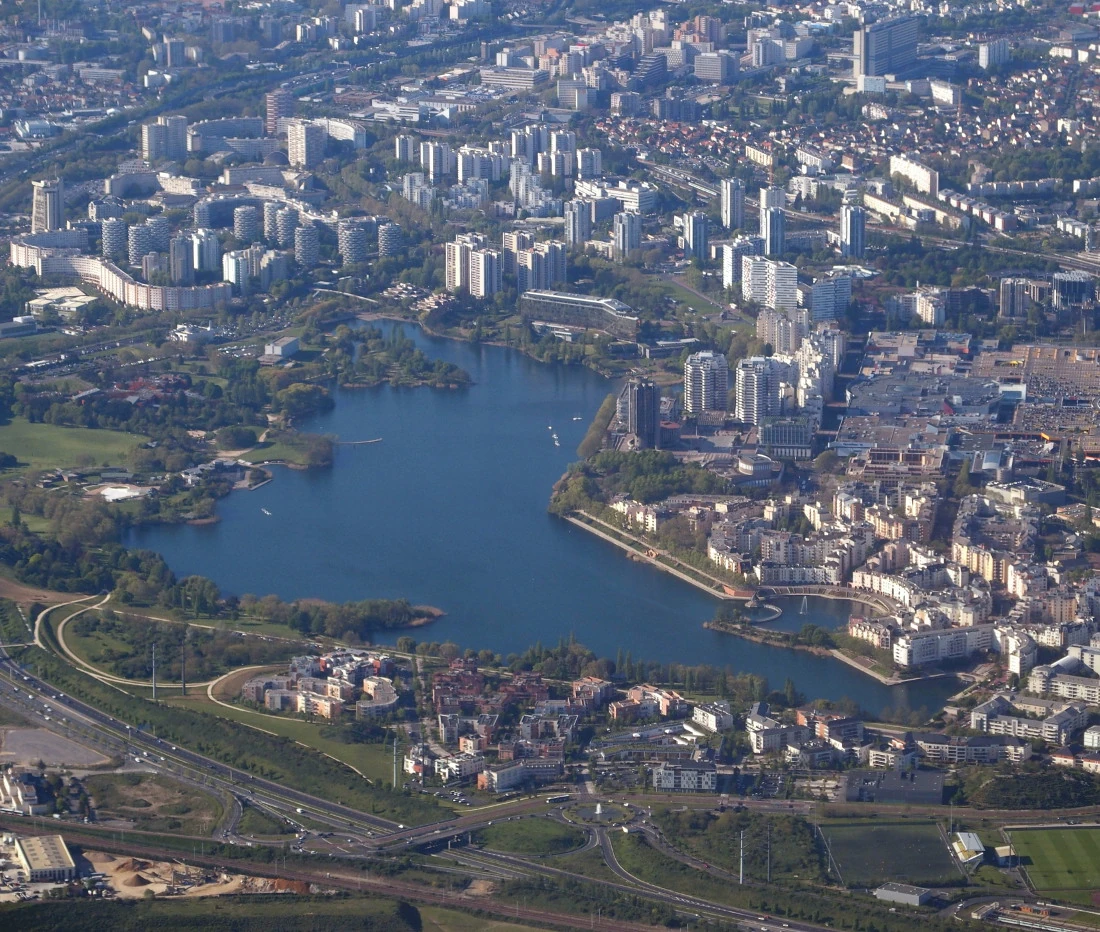



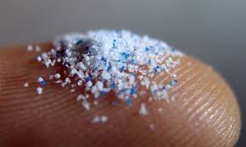
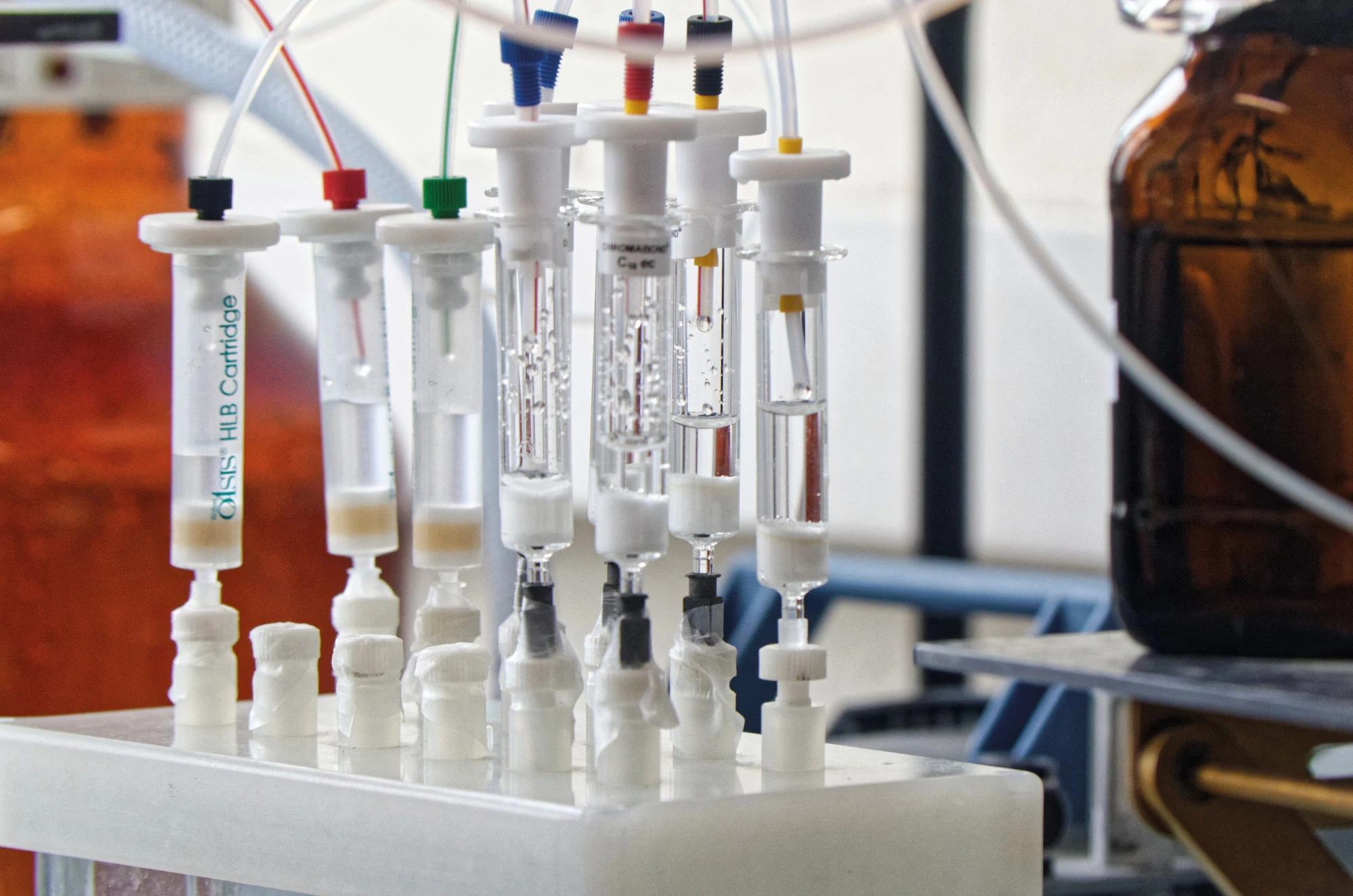
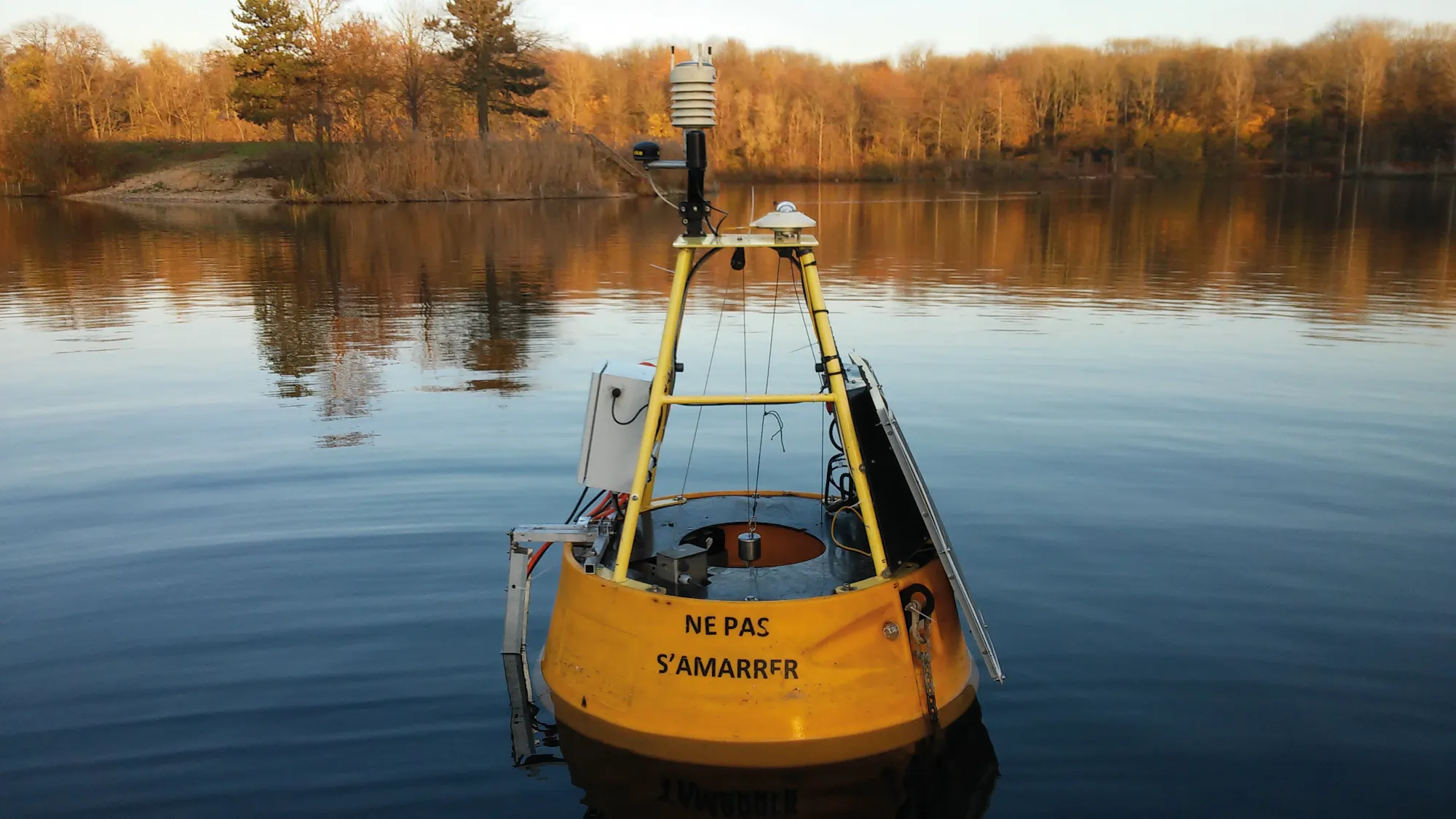
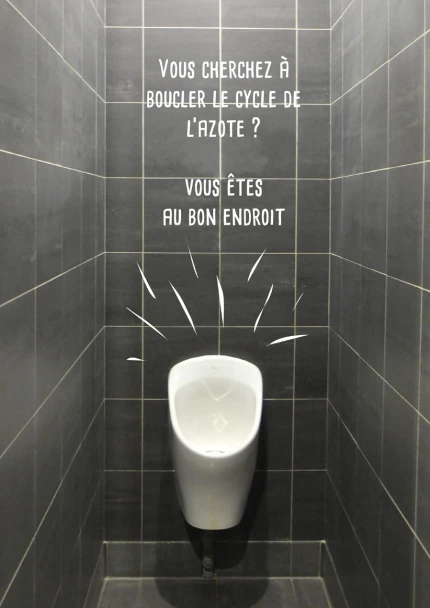
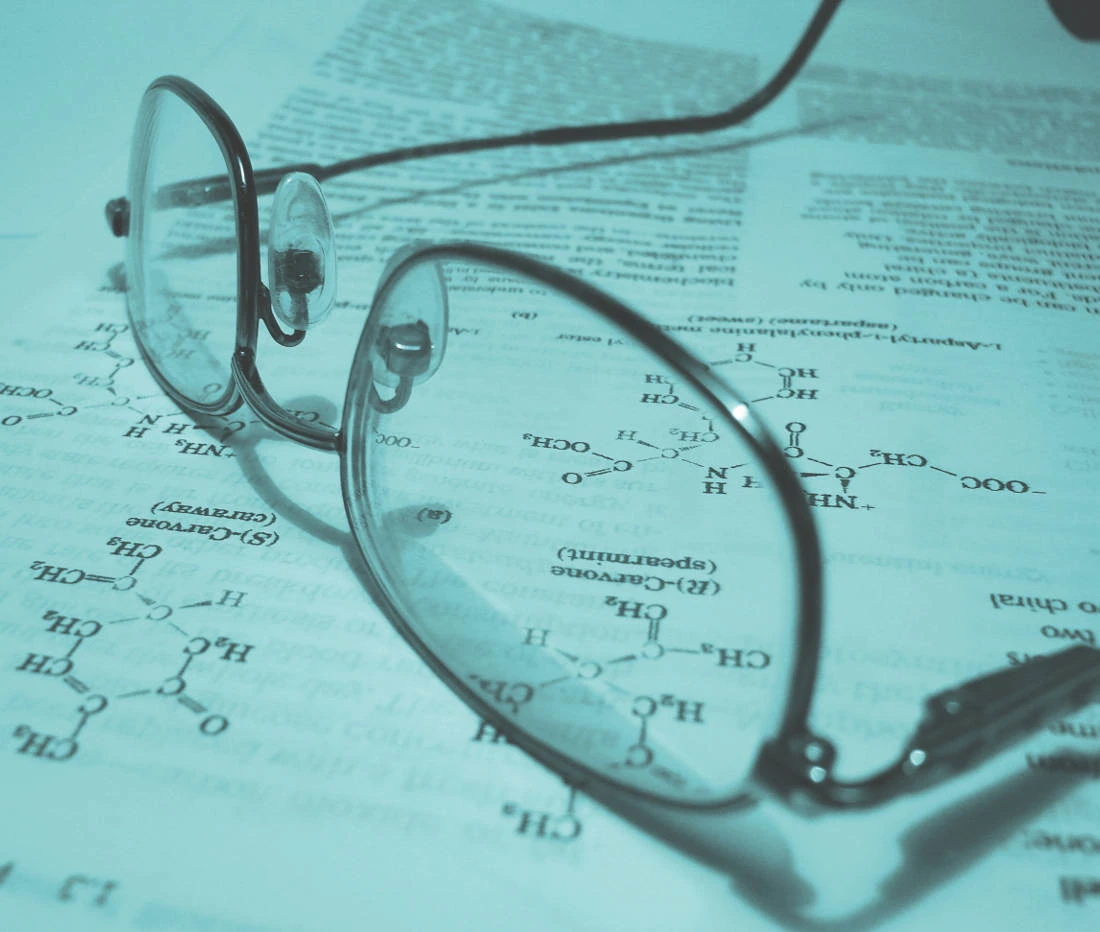 Scientific production
Scientific production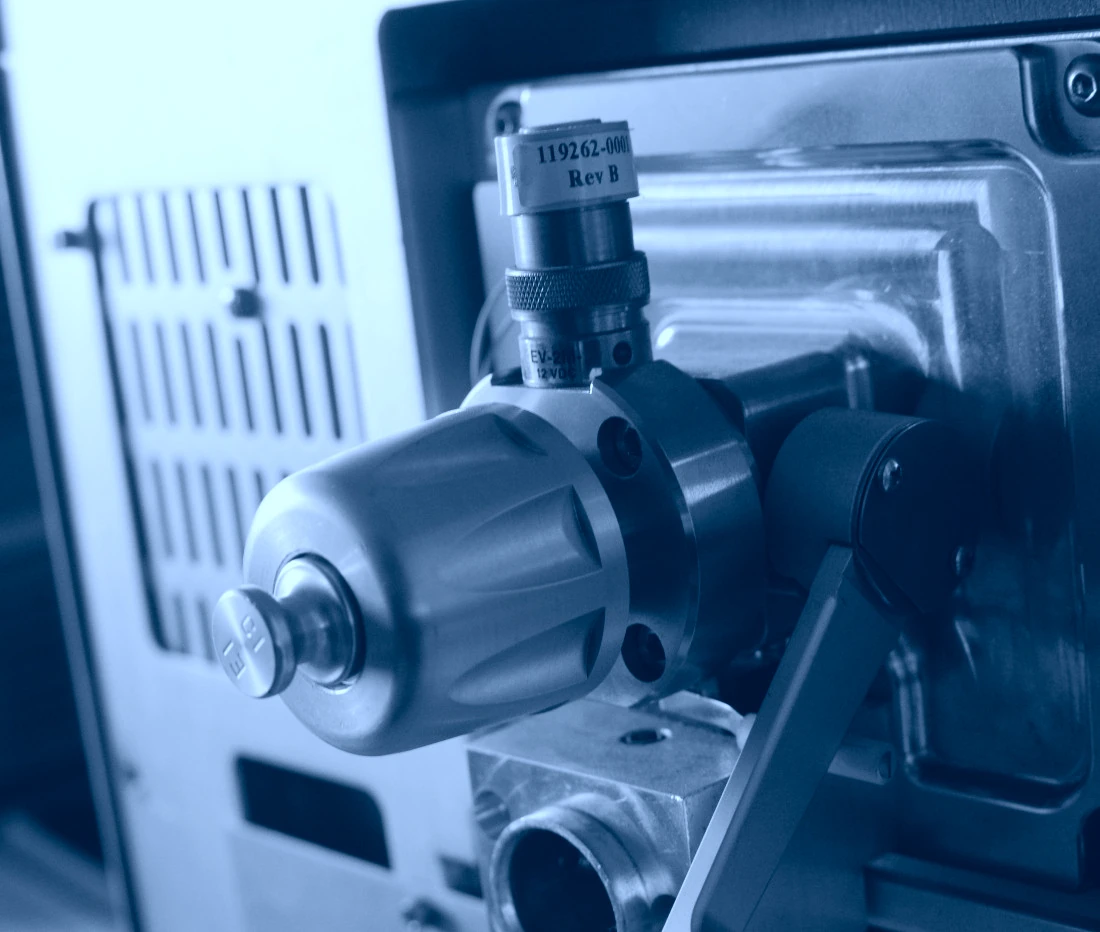 Technical resources and equipment
Technical resources and equipment Expertise and disciplines
Expertise and disciplines
